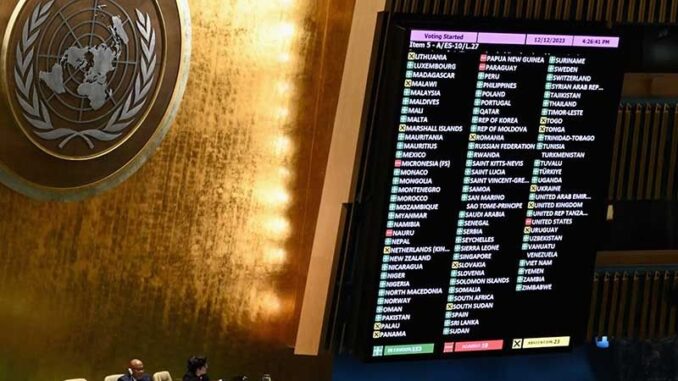
MANILA, Philippines — The Philippines is currently studying the possibility of taking its long-running maritime dispute with China to the United Nations General Assembly.
During Wednesday’s (September 18) budget plenary debates at the House of Representatives, the lawmaker sponsoring the budget of the Department of Foreign Affairs (DFA) said it has not ruled out the filing of a UN General Assembly resolution on the country’s territorial claims in the West Philippine Sea.
“The DFA really plans to file a resolution with the UN General Assembly on the Philippines’ territorial claims in the West Philippine Sea,” Rep. Joseph Gilbert Violago (Nueva Ecija, 2nd District) said during the budget hearing for the DFA.
The DFA’s decision will be based on “necessity and prudence,” the lawmaker said.
Philstar.com has reached out to the DFA for comment and will update this story with their response.
Violago was speaking on behalf of the DFA because he sponsored its budget proposal in the plenary, as practiced in House procedures.
A UN General Assembly resolution is a formal statement of opinion or recommendation adopted by the United Nations General Assembly, the main deliberative body of the UN.
While the resolutions are not legally binding, they are seen as expressions of the international community’s views and can influence international norms and policies.
“The department appreciates the recommendation and continues to study its implication,” the lawmaker said.
Even as it studies the recommendation, the DFA maintains its position on the UN General Assembly as a body designed for hearing out human development issues that “concern humanity as a whole,” he added.
Lawmakers such as Sen. Risa Hontiveros and Rep. Erwin Tulfo (ACT-CIS Partylist) have been pushing the executive department to bring up China’s incursions in the West Philippine Sea at the UN General Assembly to pressure it into ceasing its aggressive conduct.
In 2023, the Senate passed a resolution calling on the government to sponsor a resolution before the UN General Assembly that will call out China’s harassment of Filipino fishers in the Philippines’ exclusive economic zone.
“Beijing’s blunt refusal to accept her legal fate should have serious consequences. The UN General Assembly should be able to tell China to behave,” Hontiveros wrote in the resolution.
While the Senate has unanimously passed a resolution urging the DFA to raise China’s incursions before the United Nations General Assembly, maritime expert Ray Powell said this would “certainly aggravate” China and threaten the two countries’ already “fragile truce.”
Powell told Philstar.com in August that any move by the Philippines to bring up China’s maritime aggression in the UN General Assembly will certainly anger Beijing.
Even as several countries are on board with the 2016 arbitral ruling that invalidated China’s sweeping claims in the South China Sea, with Beijing’s influence in the UN, other nations who have no interest in the issue may be “bullied or convinced that their best recourse is to either vote against the Philippines or abstain,” Powell said.
China claims nearly the entire South China Sea, using the so-called nine-dash line to delineate its territorial boundaries based on historical grounds. This claim encompasses a vast area, including waters and features claimed by countries other than the Philippines such as Vietnam, Malaysia, Brunei and Taiwan.
In 2016, the Permanent Court of Arbitration in The Hague ruled against China’s claims in a case brought by the Philippines. The tribunal concluded that China’s nine-dash line had no legal basis under the United Nations Convention on the Law of the Sea.
The court also found China had violated the Philippines’ sovereign rights in its exclusive economic zone by interfering with fishing and petroleum exploration, constructing artificial islands and failing to prevent Chinese fishermen from fishing in the zone.
China has consistently rejected the ruling and has vowed to keep to its policy of “non-participation” and “non-acceptance” of the decision.





Be the first to comment